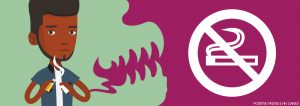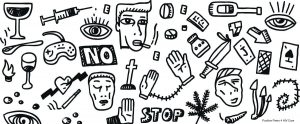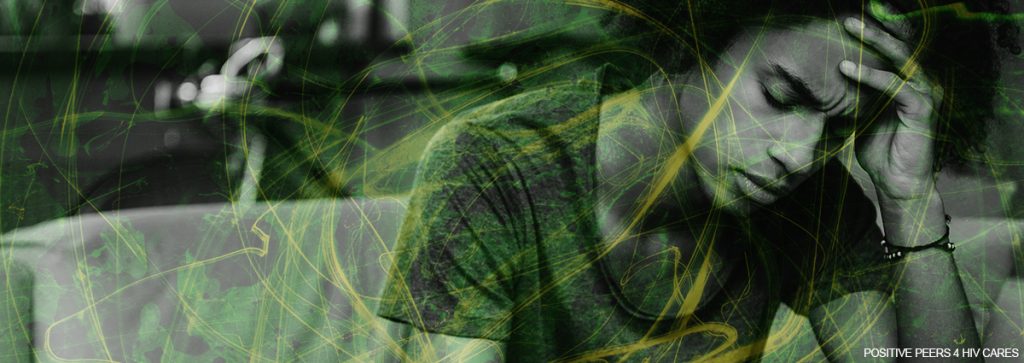
By: Ann K. Avery, MD, Infectious Disease Physician at MetroHealth Medical Center
An addiction is something you can’t stop doing, no matter how much trouble it causes. And it’s not just heroin or meth. People get hooked on video games, social media, sex, porn, gambling, and stuff you’d never think about — like pulling their hair out or going in for cosmetic surgery.
Addictions can ruin your health, drain your bank account, land you in jail, and burn up all kinds of time that you could’ve spent with your family or friends.
A lot of people want to kick their bad habits, and we support that! But we also know it can be a crazy-difficult thing to do, especially if you go it alone with nobody’s help.
If you’re ready to change things up and shake off your addictions, check out these tips:
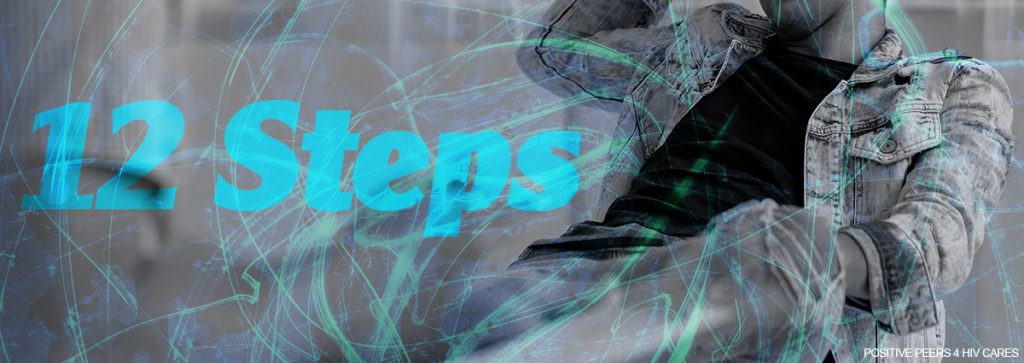
Join a 12-step program
Programs like Alcoholics Anonymous and Narcotics Anonymous are based on 12-step fellowships.
The best thing about a 12-step program is bigger than the actual steps: It’s the companionship and guidance you get from people who’ve already walked in your shoes. They get why it’s tough to kick an addiction, and they can be there for you when you’re tempted to give in.
The “steps” in these programs suggest that you admit you’re powerless to kick your addiction all by yourself and recognize that a “higher power” (whatever you believe in) can help. Once you’ve been clean and sober for awhile, the program suggests that you contact the people your addiction has harmed and make things right: Apologizing sincerely and atoning for the damage you’ve done. But don’t worry, you’ll have lots of support and you can move through the steps at your own pace. A sponsor is somebody in the group who helps you stay on track.
Fun fact: Did you know Alcoholics Anonymous was founded in Akron, OH?
Check out this link listing a whole bunch of 12-step groups.
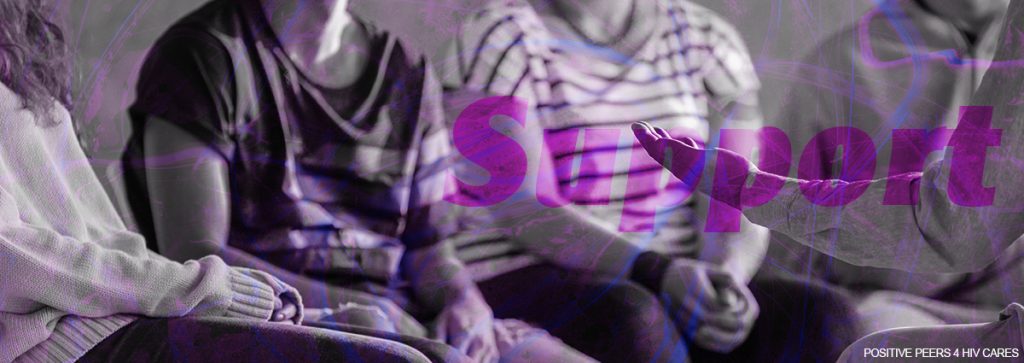
Join a support group
Support groups usually don’t have 12 steps to work through. Instead, it’s a bunch of people going through the same problems helping each other make it. Often HIV support groups, like those through Compass Services at MetroHealth in Cleveland, OH, have discussions about addiction and recovery during group.
You never know; your support group might just tell you to go ahead and join a 12-step group. But it’s better to have two options than one.
Come join our private, stigma-free, supportive community.
Health management tools with medication & appointment reminders.
Social networking in a community conversation & private chats.
Check out addiction resources in Cleveland
Sometimes you need more than 12-step programs or support groups. These organizations in metro Cleveland provide professional services that help people work through their addictions.
- Recovery Resources. Recovery Resources has professional outpatient programs where you stop in for counseling and get in-depth training for kicking your addiction. They also have HIV-related programs, so you don’t have to worry that they won’t understand your health issues. Visit their website.
- Circle Health Services. If you have mental health issues in addition to addiction challenges, Circle Health could be the right option. Circle Health also has HIV services and programs to help victims of crimes. Visit their website.
The key difference with these organizations: You work with doctors, counselors and other medical professionals who have years of training and experience. They might also help you get prescriptions for medications that can help tame your cravings. They can teach you mental techniques that make it easier to change your behaviors for good.
Professional services are usually covered by insurance these days, including Medicaid. The Ryan White program also funds some of these services for people living with HIV.
If you are interested in obtaining professional help with your addiction the first step is usually to schedule an assessment. This is where you sit down with a counselor and talk for an hour or two about everything that’s going on. The counselor then makes a recommendation for what level of care they think you need to get the best help for your addiction. Some things they might recommend include detox, in-patient addiction treatment, out-patient addiction treatment, referral to 12-step meetings, and help linking you to Suboxone programs if you need help with addiction to opioids. The best thing for you to do is to be honest during the assessment and try to stay open-minded about what they’re recommending and willing to give it a try.
MetroHealth has an intensive 12-week outpatient program with two doctors and four group counselors on staff to help people overcome substance abuse. It’s part of the hospital’s mental health department, so they know how to deal with problems like depression and bipolar disorder. (MetroHealth is the co-founder and co-sponsor of Positive Peers.)
When you hear about one of your favorite celebrities “going into rehab,” they’re usually staying in an inpatient addiction treatment program. There are several options for this in the Greater Cleveland area and the person who assesses you will be able to link you to the program that’s best for you.
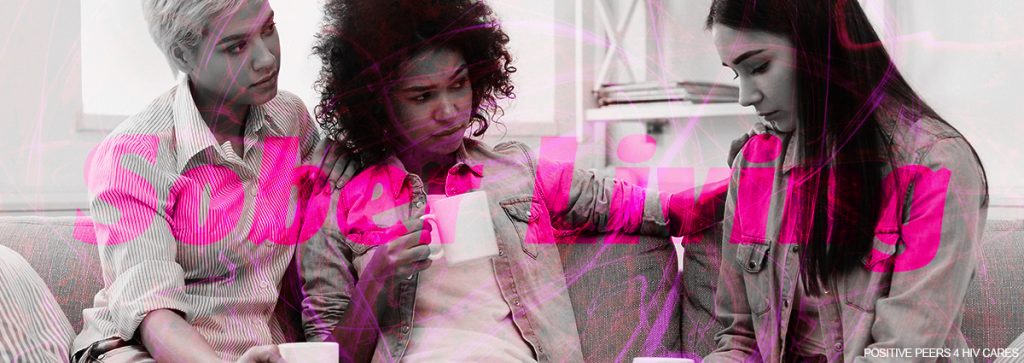
Sober-living homes
These are homes created specifically to help people live in an environment that’s free from temptations to indulge their addictions. It’s a bit like living in the same house with your support group. Sober Living Cleveland and the Ed Keating Center are two examples of sober-living environments. B. Riley Sober Home is another option and is specifically for the LGBTQ community, while Edna House is just for women. Talk to your support group, 12-step group or counselor about sober-living arrangements. They might be able to help you find a location you couldn’t find on your own.
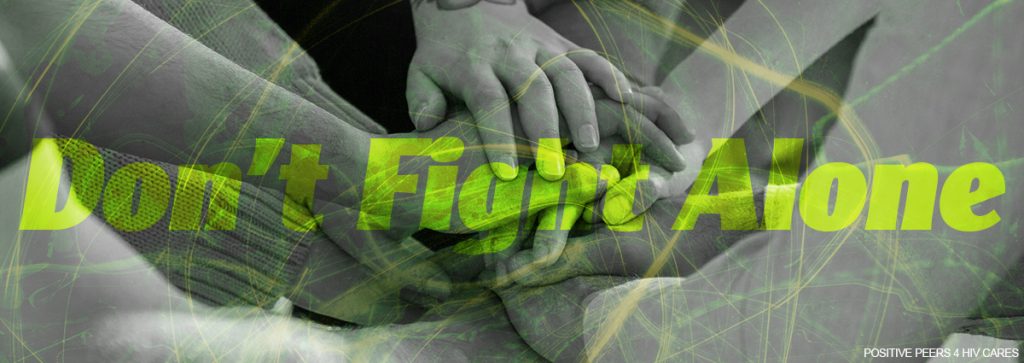
Don’t fight addiction alone
People try to go cold-turkey every day. They suffer the cravings, start feeling sick, and before they know it, they’re back at it again.
If you’re addicted to alcohol or an opiate, like heroin or fentanyl, you are likely to need medical help to get through withdrawal. It can actually be dangerous or lethal to try detoxing alone. There’s nothing easy about withdrawal, so it’s okay to seek medical help. In Cleveland, there are several options for detox, including Stella Maris and St. Vincent Charity Medical Center Rosary Hall.
A word about Suboxone…
If you’re using heroin, fentanyl, or other opioids, then you’ve probably heard of Suboxone (or even tried to cop some on the street). Suboxone is a medicine prescribed by a specially-licensed doctor that helps people kick an opioid addiction. Suboxone will curb your cravings and is a safer substitute for injecting drugs. MetroHealth has a program specifically for people living with HIV who are addicted to opioids to get Suboxone in our HIV clinic. For more information call the MetroHealth Social Work Office at (216) 778-5551 or ask your HIV doctor.
…and Narcan…
If you’re using opioids or trying to kick them, then you know it’s hard to stop the first time you try, so you should know about Narcan.
Narcan is the brand name of the drug Naloxone, which stops overdose. A friend sprays the medicine up your nose if you’re overdosing and it literally saves your life. MetroHealth gives Narcan for FREE—visit https://www.metrohealth.org/projectdawn.
… and needle exchange!
Again, we know it’s hard to stop, so it’s best to know how to use safely if you’re using Heroin or other injected street drugs. Circle Health has a needle exchange van that sits on the west side of Cleveland in the driveway between Hispanic UMADAOP and Eden’s Southpointe apartment building just next door to MetroHealth.
Most folks find the truly hard part is kicking an addiction for good. Good friends and mentors can help you overcome addictions permanently. They’ll help you if you relapse, and they’ll encourage you to find the strength to kick it for good.
All you have to do is be willing to let them. We know learning to accept help can be tough, but you can do this! You are stronger than you know and you aren’t alone 😊
Related Blogs:

